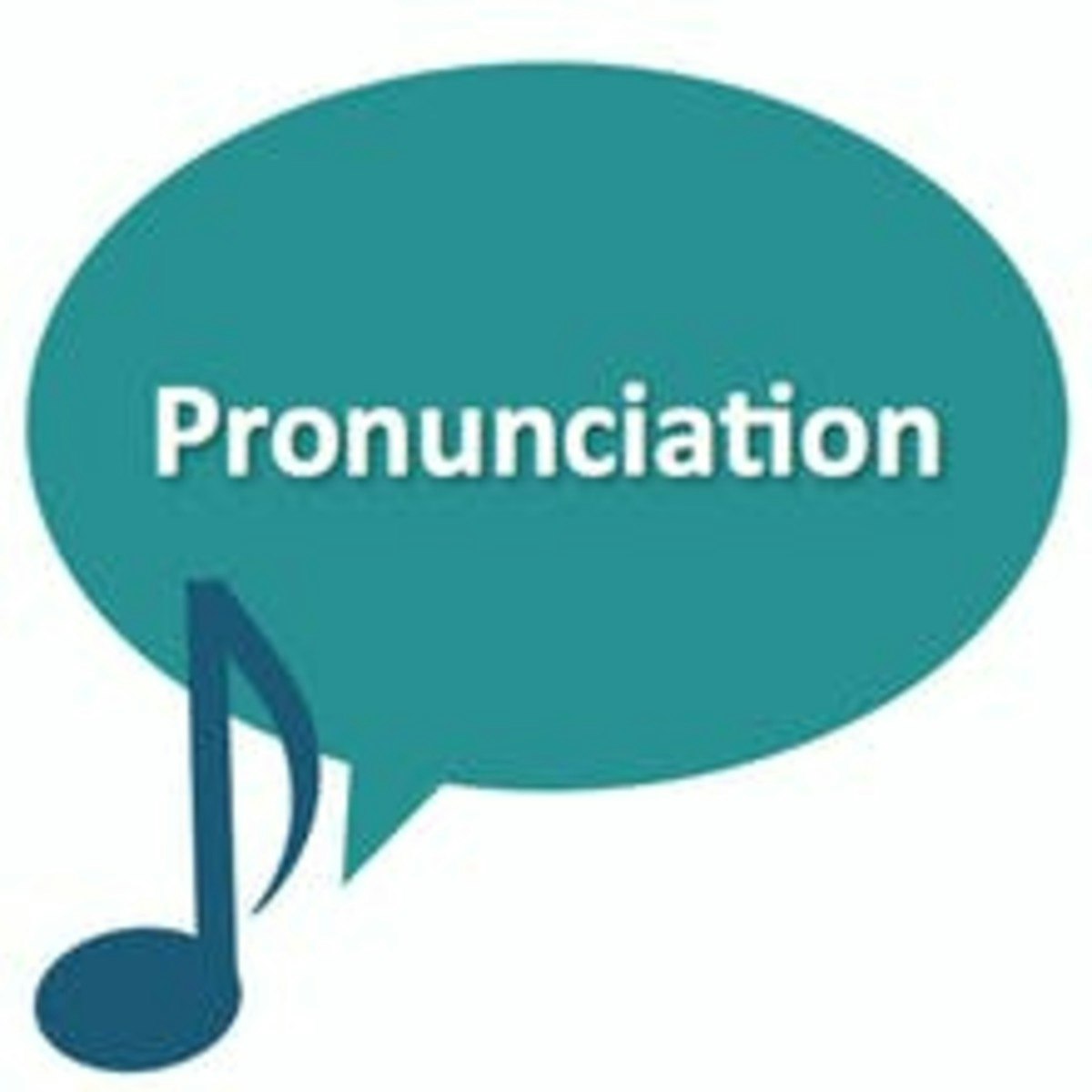Back to Courses









Language Learning Courses - Page 8
Showing results 71-80 of 153

American Deaf Culture
This is a six-week course providing a historical overview of the American Deaf community and its evolving culture. Theoretical frameworks from sociology are explored. Deafness as a culture and not a disability is explained as participants are guided into the world of Deaf culture.

A Bridge to the World: Korean Language for Beginners Ⅰ
This course is an introductory course to Korean language that aims to cultivate basic communication skill for those that are interested in learning Korean language.
The course is composed of essential expressions that are often used in everyday life, and designed to teach grammars using basic dialogues which reflect colloquial characteristics of Korean language so by end of this course, a student will be able to express him/herself on ordinary topics.
Also, the course provides dialogues used in both formal and informal situations to help students to express in Korean language appropriately in particular situations, and provides various material to help students to understand unique culture of Korean language.
Chief Contents Developer: Won-Sook Hyun
Contents Developers: Eun-Sil Hong, Ha-ra Yu
Production Assistant: Sa-ra Yoo
Part of this course was developed with K-MOOC(Korean MOOC) funds.

The Music of American English Pronunciation
In this third course of The Pronunciation of American English specialization, you will learn and practice the "music" of American English, the features of pronunciation such as stress, rhythm, and intonation that will help improve your listening comprehension as well as your ability to communicate more clearly. Each week you will receive practical advice from successful English learners and practice an effective technique called shadowing to improve your pronunciation of the musical features of English. You will also have opportunities to record yourself and to respond to the recordings of other learners.
Only learners who pay for the course will be able to take the graded quizzes or submit assignments for feedback. The free version provides access to the lectures and practice activities only.

English for Effective Business Writing
This course aims to improve your Business English writing skills by developing your use of vocabulary, grammar, understanding of different business writing genres, and your ability to write professional business documents. Skills learned in this course will be used in the cross-cultural communications course and help prepare you to produce the professional business documents in the Capstone project.
After completing this course, you will be able to:
- write business emails
- write an executive summary
- write persuasively in English
- adapt content to purpose, context and audience
- use appropriate style and tone of writing for business purposes

Chinese for HSK 1
Nǐ hǎo! 你好!Welcome to Chinese for HSK Level 1 - a Chinese course for beginners. My name is YU Bin. I am very happy to meet you here!
HSK stands for Hànyǔ (Chinese) Shuǐpíng (level) Kǎoshì (test), which is the most important Chinese proficiency test in use today. It assesses non-native Chinese speakers’ abilities in using Chinese in their daily, academic and professional lives.
Chinese for HSK Level 1 is the first part of the 6 levels and assesses test takers’ abilities in the application of everyday Chinese. It is the counterpart of Level 1 of the Chinese Language Proficiency Scales for Speakers of Other Languages and the A1 Level of the Common European Framework of Reference for Languages. You will learn:
30 video lectures with dialogue role plays by PKU students;
More than 150 commonly used words;
Around 50 key grammar points;
New words and texts via audio;
Quizzes for each lesson and HSK test papers;
Videos for 70 basic Chinese characters (optional);
Supplementary materials about China (optional).
In short, the course covers the four skills although only listening and reading are tested in HSK. At the end of the course, you will be able to understand and use simple Chinese phrases, meet basic needs for communication and possess the ability to further your Chinese language studies.
Have a fantastic journey of Chinese learning.
For more information about HSK please visit: http://english.hanban.org/node_7581.htm.

English and Academic Preparation - Pre-Collegiate
The English and Academic Preparation - Pre-Collegiate non-credit course is for students with a (minimum) high-intermediate level of English. This certificate course is designed to help domestic and international students develop the academic skills necessary for success in undergraduate studies at an American university while strengthening their English proficiency.
Ideally, prospective students have completed or are near completion of a high school diploma in their country and would like to come to the United States to study for a bachelor’s degree.
The total length of time required to complete the course is approximately 4 weeks. Students should expect to spend about 5-7 hours per week working with the materials and assignments.
The course is made up of 4 modules:
• Listening, Speaking, and Critical Thinking
• Writer’s Workshop
• Reading and Note-taking
• Capstone Project
Each module consists of video lessons, opportunities for practicing English and academic skills, interactive discussion boards with classmates, and graded activities. All courses are asynchronous, which means that the lessons and their activities can be completed at any time of day or night, provided that all course assignments are completed by the final day of class.

English for Effective Business Speaking
This course aims to improve your Business English speaking skills by developing your use of vocabulary, grammar, pronunciation, spoken communication skills within a Business context, and your ability to deliver professional business speeches for specific purposes. Skills learned in this course will be used in the cross-cultural communications course and help prepare you to deliver the professional business presentation in the Capstone project.
After completing this course, you will be able to:
- delivery effective job interviews
- give persuasive business pitches
- delivery informative business presentations
- speak persuasively in English
- adapt content to purpose, context and audience
- use appropriate style and tone of writing for business purposes

English for Teaching Purposes
Thinking about teaching your university subject in English but it’s not the Language you normally use?
Then, English for teaching purposes is the course for you. A course on English and teaching methodology that aims to help university lecturers do their teaching in English, in line with university internationalisation policies.
The course structure is the same for all learners and there are opportunities for them to link up with colleagues from universities all over the world who share the same discipline and discourse community, to ask questions and exchange ideas.
This MOOC targets lecturers who wish to begin using English in their teaching. A priori, this means university lecturers from countries where English is not the L1 or a widely-used language (Romance language-speaking countries, for example), though in fact the course is open to teachers from all educational stages who want to teach through English, following the principles of EMI (English Medium Instruction).
On completing the course, you should be able to do the following.
a) Teach a university subject in English, having gained the necessary confidence and skills.
b) Integrate all aspects of CLIL (methodological, pedagogical, strategic, attitudinal, motivational, linguistic, sociolinguistic and pragmatic) to put together their own English-medium course on their particular subject.
c) Describe the characteristics of the university lecture discourse genre (planning, agents, channels, phases, dynamics, and current flexibility of the genre).
d) Understand and perform the basic linguistic macro-functions within English teaching discourse.
e) Understand and perform, using the appropriate linguistic exponents (vocabulary, structures, and phraseology), the main micro-functions in English teaching discourse: metalinguistic, informative, evaluative, inductive, and social.
f) Consolidate their oral expression and interaction skills, and their grammar and vocabulary, at English levels C1 and C2 as defined by the Council of Europe.
English for Teaching Purposes is a course provided by the Language Service at the Universitat Autònoma de Barcelona (UAB).

Learn to Speak Korean 1
Welcome to Learn to Speak Korean 1!
This course is for beginner students who are familiar with the Korean alphabet, Hangeul. Through this course students will learn the skills essential for daily interactions with Koreans while living in Korea.
This course consists of six modules, and each module is composed of five units. Each unit has vocabulary, grammar and expressions, conversation practice, video clips, quizzes, a workbook, and vocabulary lists. In order to assist students with their independent studies, Korean learning materials such as lecture notes, workbooks, and vocabulary lists detailing each day’s lecture are also provided. The vocabulary lists are accompanied by English, Chinese, and Japanese translations.
I hope that you enjoy all this program has to offer over the next six weeks. After studying in this program, you will be able to have a real Korean conversation with your newly acquired knowledge of the Korean language. Thank you!
Your Course Team
Chief Contents Developer: Sang Mee Han
Contents Developers: Bock Ja Lee, Yoo Kyung Choi, Ha Min Cho, Ju Eun Kim
Production Assistants: Jin Hee Kim, Eun Hye Kim

Business Case Analysis
The Capstone project is the culmination of your journey through the Business English for Non-Native Speakers specialization. It is aimed at applying the written and spoken skills that you have gained to an authentic business situation. You will be able to choose a business case provided by HKUST, or use an example from your own work experience and:
(1) prepare an online video presentation (approx. ½ hour) that analyses the case and provides recommendations, and
(2) prepare a business recommendation report to coincide with the presentation (approx. 2,000 words). The report should include an executive summary, analyses of the case and recommendations.
Popular Internships and Jobs by Categories
Find Jobs & Internships
Browse
© 2024 BoostGrad | All rights reserved